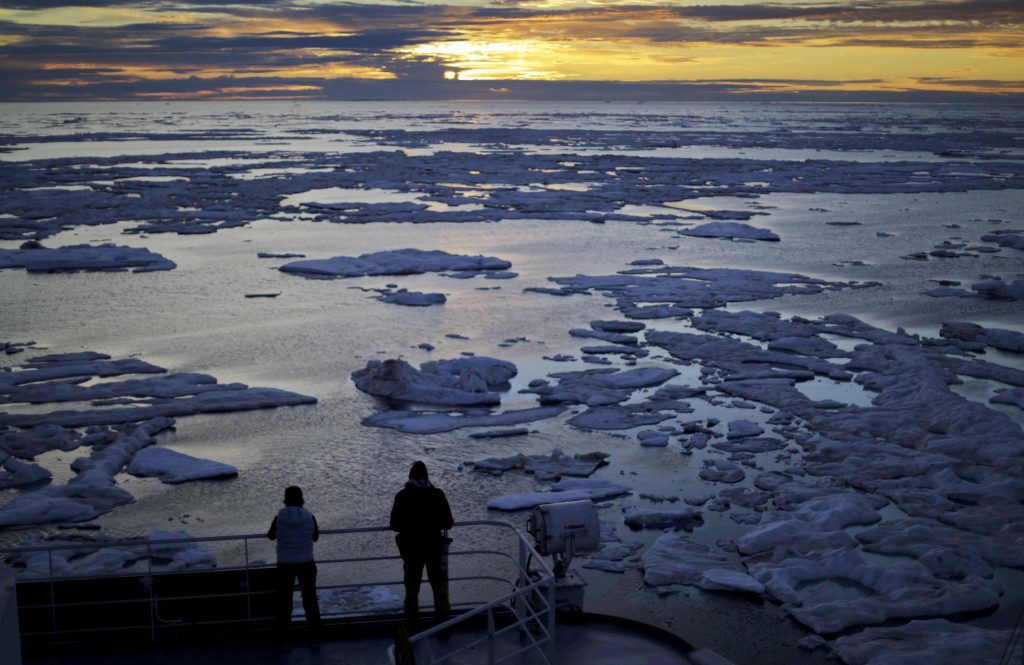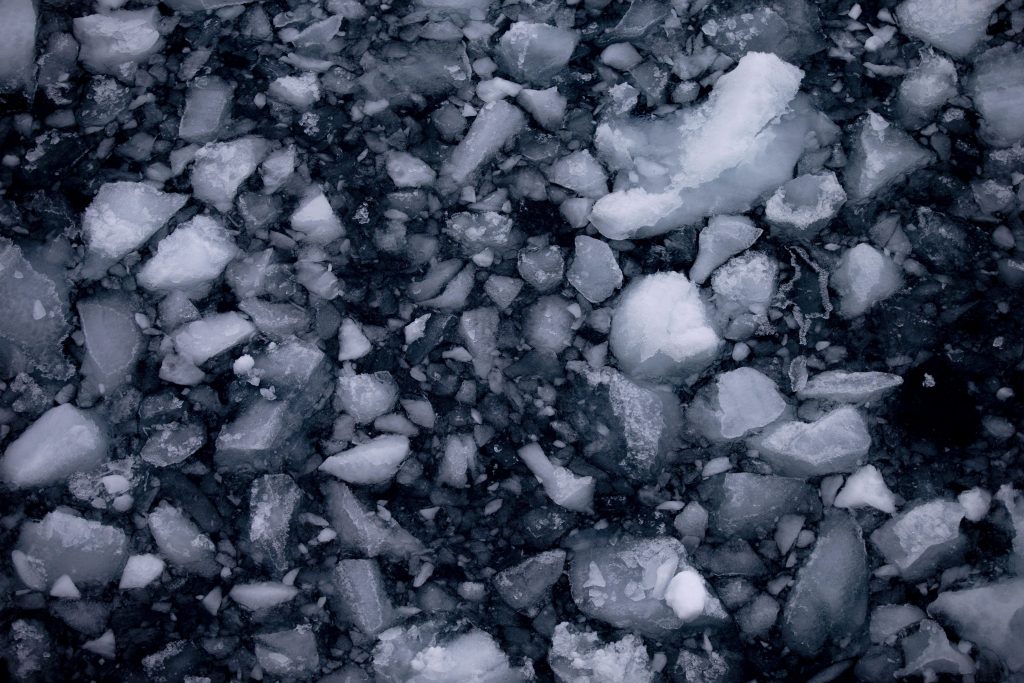Polar oceans growing more chaotic as planet warms, with impacts for undersea life: study

Most people have heard how melting sea ice and warming oceans are impacting polar environments, but a new study has found that these changes are having an additional knock-on effect for oceans, which are becoming increasingly turbulent.
Published on Wednesday in the journal Nature Communications Earth & Environment, the study found that the swirling motion that moves heat, carbon, and nutrients around the sea, referred to as mesoscale horizontal stirring, or MHS, is increasing faster than scientists had anticipated.
“Projected increases in MHS are expected in the Arctic Ocean and coastal Antarctic regions,driven by enhanced time-mean ocean flow and turbulence which predominantly result from sea-ice reduction,” the paper’s authors said.
To do the study, the researchers used an ultra-high-resolution global climate model to track ocean movements and their responses to rising carbon dioxide levels.

In the Arctic, with less sea ice to block the wind, they found that gusts would churn up stronger, rougher and more turbulent currents.
In Antarctica, that data indicated that fresh meltwater from shrinking ice shelves will intensify the coastal current that circles the continent, something that will also increasingly stir the ocean’s surface.
Urgent need to better understand phenomenon in Arctic: authors
But these changes wouldn’t just impact things like navigation, the study says, it would also alter heat and carbon distribution in the waters.
The authors warn that faster, more chaotic currents could mix heat and nutrients in unexpected ways, helping plankton thrive in some regions while funneling nutrients away from areas were marine life previously flourished.

The study’s authors described Antarctic sea ice projections as “more reliable” but that Arctic changes may be underestimated, something necessitating increased study on ocean dynamics at the North Pole.
“Such knowledge is particularly crucial in the Arctic, where rapid sea ice loss is likely to make the ocean seasonally navigable within decades, increasing its importance for human activities and the urgency of understanding its changing environment,” the study said.
Comments, tips or story ideas? Contact Eilís at eilis.quinn(at)cbc.ca
Related stories from around the North:
Canada: Wildfire seasons in the N.W.T. unlikely to ease off by next century, study finds, CBC News
Finland: Flooding in Finland is getting worse, new climate report says, Yle News
Greenland: Ocean currents may be driving mercury pollution in Arctic, says study, Eye on the Arctic
Iceland: Resilience, recovery prioritized in Iceland report on Grindavik evacuation, Eye on the Arctic
Norway: Weather above normal for 18 consecutive months, The Independent Barents Observer
Russia: New NOAA report finds vast Siberian wildfires linked to Arctic warming, The Associated Press
Sweden: Proposal—Sweden’s 2030 climate targets to remain unchanged, Radio Sweden
United States: How the Arctic has been ‘pushed & triggered’ into climate extremes: paper, Eye on the Arctic



